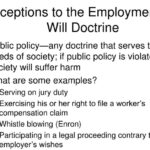In early 2023, the Christian community was rocked by news of Pastor Chris Hodges’ sudden leave of absence from Church of the Highlands. This scandal left many wondering what happened and why. Let’s dive into the details, examining the events that unfolded, the impact on the church, and the broader implications for religious leadership.
Here is a bio and wiki for Pastor Chris Hodges
| Biography Info | Details |
| Full name | Christopher Stephen Hodges |
| Birthday | September 3, 1966 |
| Birthplace | Baton Rouge, Louisiana, United States |
| Alma mater | Dallas Baptist University <br> Southwestern Baptist Theological Seminary (MDiv) |
| Occupation | Pastor, Author, Founder of Association of Related Churches |
| Years active | 1994–present |
| Spouse | Tammy Hodges (m. 1991-) |
| Children | 4 children |
| Church | Founding & Senior Pastor of Church of the Highlands (since 2001) |
| Congregation size | 47,000 weekly attendees at over 20 campuses |
| Denomination | Non-denominational evangelical |
| Influences | E. Stanley Jones, Henlee Barnette |
| Books written | Fresh Air, Four Cups, Grace and Grit |
| Awards & Honors | Named one of 10 “Rising Young Religious Leaders” in 2008 |
Key facts:
- Originally from Louisiana, Hodges felt called to ministry at age 15
- Earned theology degrees in Texas while gaining experience at local Dallas churches
- Founded Church of the Highlands in 2001 with wife Tammy and a handful of members
- Grew Highlands into the 5th largest megachurch in America over 20 years
- Known for visionary preaching style mixing spiritual depth with sensitivity to families/relationships
Pastor Chris Hodges Exposed Scandal
It all started with a surprising announcement. Pastor Chris Hodges, the charismatic leader of Church of the Highlands, stepped away from his duties citing “personal reasons.” The vague explanation set tongues wagging and rumors flying.
Soon after, a leaked letter hinted at something more serious. Allegations of an inappropriate emotional affair and abuse of power surfaced. While unconfirmed, these claims sent shockwaves through the congregation and beyond.
For a pastor known for preaching moral purity, even the hint of impropriety was devastating. The contrast between public teachings and private actions left many feeling betrayed and confused.
Is Chris Hodges the Founding and Senior Pastor of Church of the Highlands?
Yes, Chris Hodges is indeed the founding and senior pastor of Church of the Highlands. His journey with the church began in 2001, starting from humble beginnings in a school cafeteria.
Over two decades, Hodges transformed that small gathering into Alabama’s largest church. His dynamic preaching style and focus on practical faith application resonated with thousands.
Under Hodges’ leadership, Church of the Highlands grew to over 20 campuses across Alabama. Weekly attendance soared to 47,000, making it the fifth-largest church in the United States.
Hodges didn’t stop there. He founded the Association of Related Churches, training other pastors in his ministry techniques. His influence expanded nationwide through books on Christian living.
What Does the Church of the Highlands Believe?
Church of the Highlands identifies as a neo-charismatic evangelical congregation. Their core beliefs include:
- The Bible as the divine word of God and sole spiritual authority
- Salvation through faith in Jesus Christ alone
- The Holy Spirit’s continual guidance in believers’ lives
- Racial reconciliation and social responsibility as Christian duties
The church emphasizes integrity, purity, and accountability as central Christian principles. They strive to reflect God’s unconditional love in their actions and community service.
Hodges frequently preached about admitting faults, resisting pride, and relying on God rather than self. This makes the recent scandal particularly jarring for many followers.
Chris Hodges’ Success and Influence
Before the scandal broke, Chris Hodges was a titan in the evangelical world. His influence extended far beyond Alabama’s borders.
Hodges’ weekly messages reached over 50,000 attendees across multiple campuses. His books on Christian living became popular resources for believers nationwide.
His approach blended traditional religious values with modern aesthetics and technology. This formula proved incredibly effective in attracting and retaining members across generations.
Young and old alike admired Hodges for his seemingly down-to-earth nature despite his fame. He cultivated a sense of accessibility that fostered deep loyalty among his followers.
Potential Causes & Enabling Factors
If the allegations against Hodges prove true, it raises questions about what systemic issues might have allowed such behavior to go unchecked.
Lack of Accountability: Despite the church’s size, there seemed to be few checks on Hodges’ power. Did his senior status shield him from necessary oversight?
Priority on Growth: Was the drive to expand locations and followers prioritized over maintaining internal cultural health?
Celebrity Culture: Did the admiration and hero worship Hodges received create a dangerous environment ripe for abuse?
Rapid Expansion: Did the church’s explosive growth outpace its ability to establish proper governance structures?
These factors highlight how even well-intentioned leaders can falter without proper safeguards in place.
Aftermath and Response
On January 15, 2023, Hodges released a statement admitting to falling short in his personal and spiritual life. He expressed regret for any embarrassment caused to others.
Church leadership urged congregants to offer grace while acknowledging the need for leaders to step away when failing to meet biblical standards.
This response highlights a common struggle in religious communities: balancing forgiveness with accountability. It also raises questions about the appropriate consequences for leaders who breach trust.
Without full transparency about the exact nature of Hodges’ “personal failure,” many are left wondering if the response is proportionate to the offense.
Response From Supporters
Despite the scandal, many of Hodges’ supporters rushed to his defense. Long-time members expressed disbelief that their beloved pastor could be capable of intentional wrongdoing.
Some pointed to Hodges’ efforts in racial reconciliation and community outreach as evidence of his good character. Close associates vouched for his sincerity in addressing societal issues.
This outpouring of support illustrates the deep emotional connections Hodges fostered with his congregation. It also highlights the complexity of judging religious leaders who’ve made positive impacts alongside potential failings.
The Crucial Element of Trust
At the heart of this scandal lies the issue of trust. Hodges built his ministry on a foundation of authenticity and moral authority.
For many followers, the possibility that their spiritual guide failed to live up to his own teachings is deeply unsettling. It challenges fundamental assumptions about their faith community.
Rebuilding trust, if possible, will require complete transparency from Hodges and church leadership. Vague statements and attempts to minimize the situation are likely to backfire.
The path forward demands honesty, even when uncomfortable. As Proverbs 27:6 states, “Faithful are the wounds of a friend; profuse are the kisses of an enemy.“
The Complexity of Scandal
Situations like these reveal the messy reality of human nature, even among respected religious figures. Few leaders likely enter ministry intending to fall into secret sin.
The very qualities that make someone an effective communicator and visionary can also create blind spots. Ambition, charisma, and workaholic tendencies might foster both public good and private failings.
This complexity cautions against rushing to extreme judgments. It’s possible for someone to have made genuine positive impacts while also engaging in harmful behavior.
As theologian N.T. Wright noted, “The people that God uses are flawed people. That’s kind of the point… There is forgiveness, there is grace.“
Is Chris Hodges Conservative or Liberal?
Pinning down Hodges‘ exact ideological leanings proves challenging. His stances often defy simple political labels.
While leading a southern evangelical megachurch, Hodges also gained respect for his efforts to bridge racial divides. He participated in clergy marches and fostered conversations on white privilege within his predominantly white congregation.
These actions drew criticism from some conservative circles. Yet Hodges maintained close ties with minority leaders and communities through reconciliation efforts.
This nuanced approach highlights the danger of projecting assumed biases onto religious leaders. It also underscores the importance of considering context when analyzing a public figure’s stance on complex issues.
The Road Ahead
The future remains uncertain for Chris Hodges and Church of the Highlands. The path to potential redemption or permanent separation is yet unclear.
For Hodges, true restoration likely requires a level of vulnerability and accountability he’s preached about for years. Living out those teachings in this crisis could prove his most impactful sermon yet.
Church of the Highlands faces the challenge of navigating this turbulent period while maintaining its mission. Balancing grace with appropriate consequences will test the community’s resilience.
For congregants grappling with shaken faith, seeking fellowship in smaller, local gatherings might offer a healing path forward.
Lessons for Religious Communities
This scandal offers valuable lessons for religious institutions of all sizes:
- Establish robust accountability structures, even for top leadership.
- Prioritize internal cultural health alongside external growth.
- Guard against unhealthy hero worship of charismatic leaders.
- Develop governance systems that can scale with rapid growth.
- Foster environments where concerns can be safely raised and addressed.
Implementing these practices can help prevent future crises and build more resilient faith communities.
The Importance of Transparency in Crisis
When religious leaders face allegations of misconduct, the impulse to protect reputations often backfires. Vague statements and attempts to downplay issues typically breed more suspicion and rumors.
True healing and potential restoration begin with radical honesty. This includes:
- Clearly stating the nature of the offense
- Acknowledging harm caused to specific individuals or groups
- Outlining concrete steps for accountability and change
- Providing regular updates on the process
While painful in the short term, this level of transparency builds a foundation for rebuilding trust.
Read This Post:
The Importance of Transparency in Church Leadership
In the wake of the Hodges scandal, one word keeps popping up: transparency. It’s not just a buzzword; it’s a necessity in modern church leadership.
Gone are the days when congregations blindly followed their leaders. Today’s churchgoers want – and deserve – openness. It’s about creating a culture where tough questions are welcomed, not avoided.
Transparency isn’t just about admitting when things go wrong. It’s about regular, honest communication. It’s leaders being vulnerable, sharing their struggles, and showing they’re human too.
For Church of the Highlands moving forward, embracing transparency could be key to rebuilding trust. It might be uncomfortable, but it’s essential for healing and growth.
The Role of Social Media in Church Scandals
Let’s talk about the elephant in the room – social media. In Hodges’ case, it was both a blessing and a curse.
On one hand, social media amplified his message, helping Highlands grow. On the other, when the scandal broke, it became a wildfire of rumors and speculation.
Church leaders today need to be savvy about social media. It’s not just about posting inspirational quotes. It’s about managing crises, addressing concerns quickly, and being authentic online.
The Hodges situation shows how fast information – and misinformation – can spread. It’s a reminder that in the digital age, church leaders need to be prepared for their private lives to potentially become very public.
Lessons for Other Churches and Leaders
The Hodges scandal isn’t just a Highlands problem. It’s a case study for churches everywhere.
First lesson? Don’t put leaders on pedestals. When we treat pastors like they’re infallible, we set them (and ourselves) up for disappointment.
Second, create robust accountability structures. No leader should be above questioning or feedback. It’s not about mistrust; it’s about health and safety for everyone.
Third, prioritize congregational care over church growth. Numbers are nice, but not at the expense of a healthy church culture.
Lastly, be prepared. Have crisis management plans in place. Hope for the best, but be ready for challenges. It’s not pessimism; it’s wisdom.
The Impact on Church Members’ Faith
Let’s not forget the folks in the pews. For many Highlands members, this scandal isn’t just about Hodges. It’s shaking the foundations of their faith.
Some might question everything they’ve been taught. Others might struggle with feelings of betrayal or confusion. It’s a spiritual crisis for many.
This is where community becomes crucial. Small groups, counseling services, open forums – these can be lifelines for members wrestling with doubt.
It’s also an opportunity for growth. Challenging times can lead to deeper, more mature faith. It’s not easy, but it can be transformative.
Rebuilding and Moving Forward
So, what does rebuilding look like for Church of the Highlands? It’s not about quick fixes or PR moves. It’s about deep, systemic change.
First step? Honest assessment. What systems failed? What cultural issues need addressing? It’s time for some corporate soul-searching.
Next, involve the congregation. Healing isn’t top-down; it’s a community effort. Listen to concerns, ideas, and critiques. Make people part of the solution.
Consider bringing in outside help. Sometimes, fresh eyes can see things insiders miss. It’s not admitting defeat; it’s being wise.
Lastly, be patient. Trust takes time to rebuild. It’s not about getting back to “normal” – it’s about creating a healthier, more resilient church community.
The Broader Conversation on Power and Accountability in Churches
The Hodges situation opens up a bigger conversation about power dynamics in churches. It’s not just a Highlands issue; it’s an evangelical culture issue.
How do we create systems where leaders are both empowered and accountable? It’s a delicate balance, but a necessary one.
This scandal might be a tipping point for many churches to reevaluate their structures. Are there checks and balances? Is there a culture of honest feedback?
It’s also sparking discussions about the mega-church model itself. Is there an inherent risk in concentrating so much influence in one person?
These are tough questions, but they’re crucial for the health of churches moving forward. The Hodges scandal might just be the catalyst for some much-needed change in how we approach church leadership and accountability.
Conclusion
The Chris Hodges scandal serves as a sobering reminder that even admired spiritual leaders are human, capable of grave mistakes. It challenges religious communities to examine how they build resilient systems of accountability and support.
For the Church of the Highlands, the road ahead demands careful navigation. Balancing grace with appropriate consequences will test the community’s commitment to its stated values.
As this situation continues to unfold, it offers an opportunity for reflection on the nature of spiritual leadership, the dangers of unchecked power, and the complex process of healing after betrayal of trust.
May all involved find wisdom, healing, and a path forward that honors the hope and redemption central to the Christian faith Hodges has long proclaimed.







